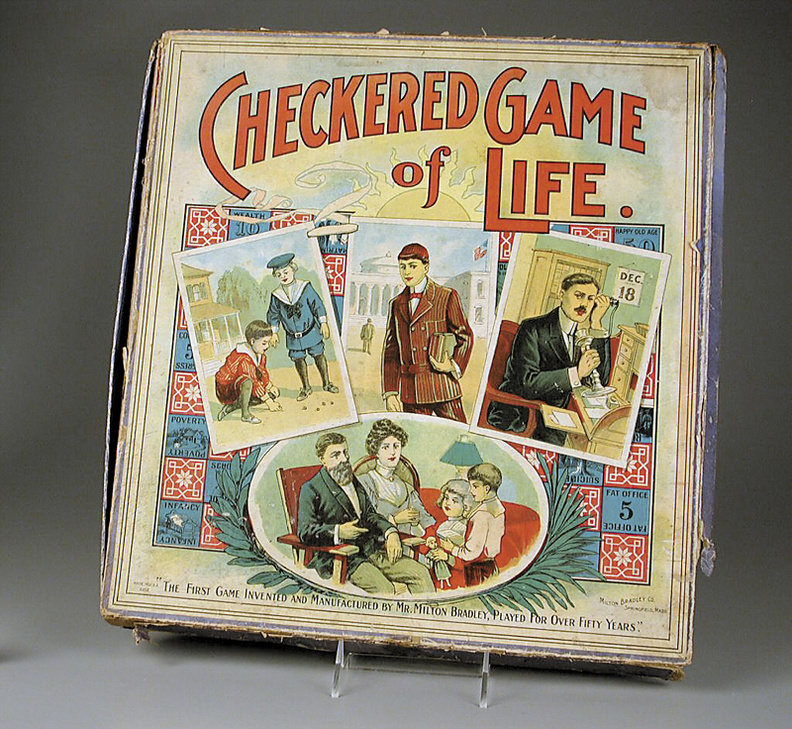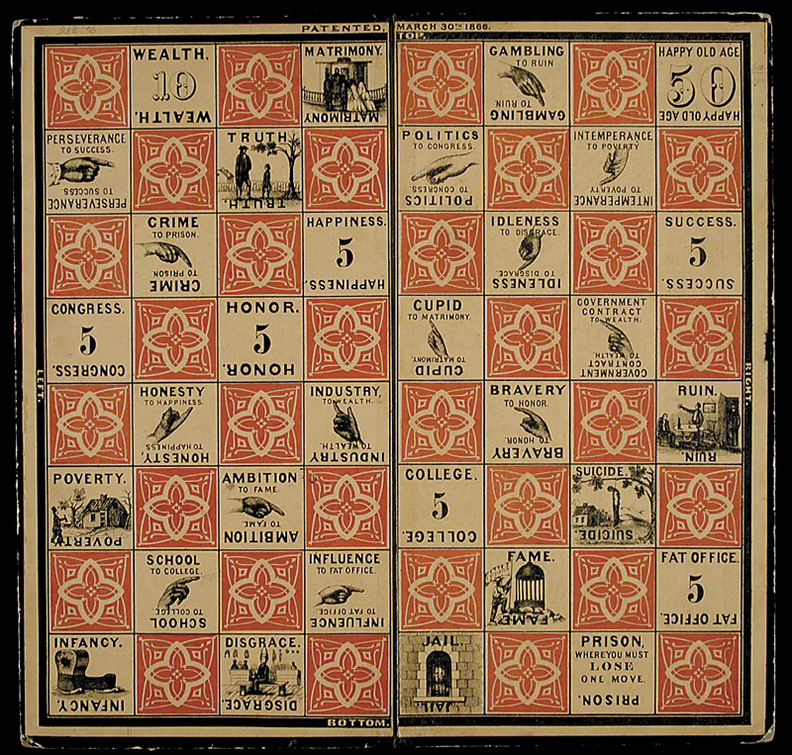Sometimes in the game of life, it’s the setbacks that end up leading a person to the greatest success.
That idea will be part of the theme Friday night in a presentation about board game founder Milton Bradley, a man from Vienna, Maine, who rose from early failures to become head of a home entertainment empire.
“Milton Bradley: The Man Who Taught America How to Play,” will be given by David Richards, director of the Margaret Chase Smith Library in Skowhegan. The 7 p.m. talk at the Victor Grange in Fairfield Center kicks off a summer series about games and play at eight area libraries and museums.
The series of exhibitions and programs, “Central Maine Plays,” explores the fun children and families had playing games in the days before radio, television and the Internet. The idea is to link local history and events to the broader picture of America from the time of the Civil War into the early years of the past century, said Angie Stockwell, collection specialist at the Margaret Chase Smith Library.
The programs include a scavenger hunt featuring a timeline at the library of the ways Margaret Chase Smith had fun as a young girl in Skowhegan. Children and families in the scavenger hunt will visit stops along the timeline of Sen. Smith’s life from her childhood swimming in 1910 to high school basketball in 1915, picnicking, ice fishing, croquet, baseball, dolls and playing cards in the 1950s and ’60s.
There also is a an exhibit called “Let’s Play” at the Margaret Chase Smith Gallery at Good Will-Hinckley in Fairfield.
Library Director David Richards said his talk Friday night will focus on Milton Bradley, who was born in Vienna in 1836 and lived in Mercer and Mount Vernon. His father’s business failed when Milton was 10 and the family moved to Lowell, Mass., where there were jobs.
“It was sort of his lesson about the hardships of life,” Richards said.
At about age 20, Milton moved to Springfield, Mass., where he became a printer and a draftsman and got his second lesson on the challenges of life. When Abraham Lincoln was nominated for president in 1860, Bradley was printed his campaign posters.
The problem, Richards said, was that all of the posters made by Bradley showed Lincoln clean-shaven. Lincoln grew his beard in the weeks before the election. So in those crucial weeks, Lincoln campaigned with a full beard, making Bradley’s posters outdated, he said.
“It was another case where he had a misstep, a failure in life,” Richards said. “As with most successful people he didn’t give up and he then decides to invent a board game and his very first game, is, in the long run, then his most successful game.”
The game was called The Checkered Game of Life, which survives today in toy stores as The Game of Life, manufactured by Hasbro Inc., which bought the Milton Bradley company in 1984.
In the original game, Bradley took a common checker board and applied squares with virtues and vices of life with points to be won as the player moved to the end of the board.
To win the game, a player had to accumulate 100 points. The board, however, had only enough spaces to win 90 points. To get 100 points, the player had to accept game penalties and retrace his or her steps and then resume play.
“He understood that in life, sometimes you have setbacks,” Richards said. “And with setbacks, you get to move forward again. You have to have setbacks in life and that gives you the opportunity to keep your points and accumulate the extra points you need to win.”
Friday’s presentation is free and there will be refreshments and door prizes. Musician David Staber will play popular tunes in Maine from the 1800s on a fiddle made in 1882 by John Lorring of Norridgewock.
Doug Harlow — 612-2367
dharlow@centralmaine.com
Send questions/comments to the editors.





Success. Please wait for the page to reload. If the page does not reload within 5 seconds, please refresh the page.
Enter your email and password to access comments.
Hi, to comment on stories you must . This profile is in addition to your subscription and website login.
Already have a commenting profile? .
Invalid username/password.
Please check your email to confirm and complete your registration.
Only subscribers are eligible to post comments. Please subscribe or login first for digital access. Here’s why.
Use the form below to reset your password. When you've submitted your account email, we will send an email with a reset code.